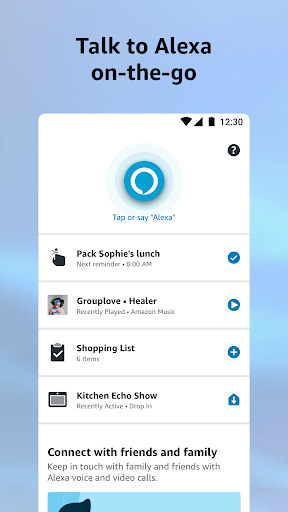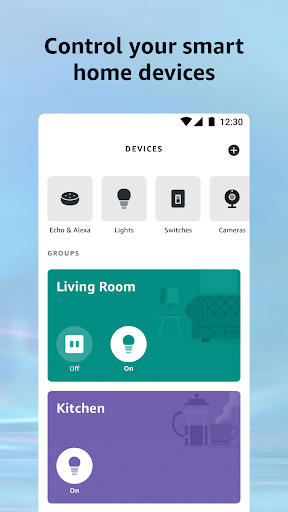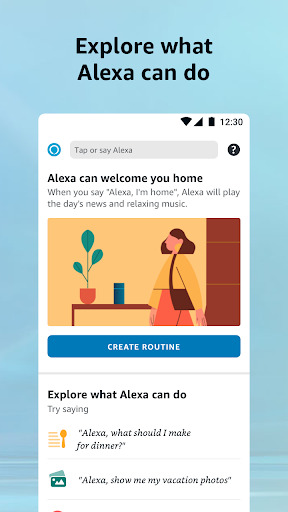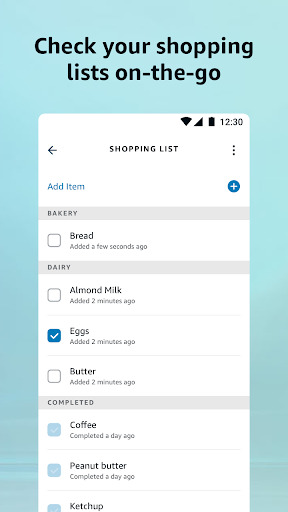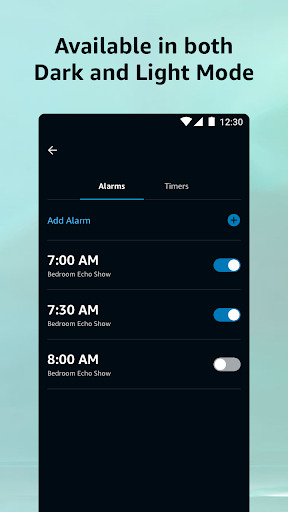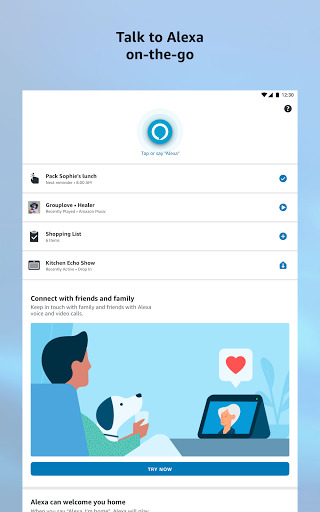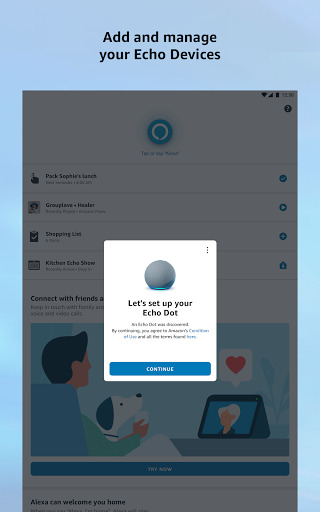Popular Now
The Origins and Evolution of Amazon Alexa
To fully understand the capabilities of Amazon Alexa, it's important to trace its origins and how it has evolved over the years.The Launch of Amazon Alexa
Amazon Alexa was first introduced in 2014, debuting with the Amazon Echo, a smart speaker that marked Amazon's entry into the voice assistant market. Alexa was designed to be a hands-free, voice-activated assistant, capable of performing a variety of tasks using natural language processing. The early success of Alexa paved the way for its integration into a wide range of devices, from smart speakers to household appliances.Alexa's Growth and Integration
Over the years, Alexa has seen significant growth, expanding its capabilities and integrating with an ever-growing number of smart devices. Amazon Alexa is now compatible with thousands of products, allowing users to control everything from lights and thermostats to security cameras and kitchen appliances. This growth has cemented Alexa’s place as a central hub for smart home management.Key Features of Amazon Alexa
Amazon Alexa offers a wide range of features that make it a versatile and powerful smart assistant for both personal and home use.Voice Commands and Interactions
One of the most notable features of Amazon Alexa is its ability to respond to voice commands. Users can interact with Alexa by simply saying "Alexa," followed by a command. Whether you're asking for the weather forecast, setting a timer, or playing your favorite playlist, Alexa can handle it all. The natural language processing capabilities of Alexa allow it to understand and execute a wide range of requests, making it a highly intuitive assistant.Smart Home Integration
Amazon Alexa excels in smart home integration, allowing users to control compatible devices with their voice. From adjusting the thermostat to turning off the lights, Alexa can manage multiple smart devices through simple voice commands. This integration extends to smart plugs, security systems, and even home entertainment systems, providing a seamless and convenient way to manage your home.Benefits of Using Amazon Alexa
Using Amazon Alexa comes with several benefits that enhance daily life and streamline various tasks.Convenience and Hands-Free Control
One of the most significant benefits of Amazon Alexa is the convenience it offers. With hands-free control, users can perform tasks without having to physically interact with devices. Whether you're cooking in the kitchen, working out, or relaxing on the couch, Alexa allows you to control your environment with just your voice. This convenience is especially beneficial for multitasking or for individuals with mobility issues.Personalization and Routines
Amazon Alexa offers a high level of personalization, allowing users to set up routines that automate daily tasks. For example, you can create a morning routine that turns on the lights, starts the coffee maker, and plays the news when you say "Good morning" to Alexa. These routines can be customized to fit your lifestyle, making Alexa a truly personal assistant.Potential Drawbacks of Amazon Alexa
While Amazon Alexa offers many advantages, there are also some potential drawbacks to consider.Privacy Concerns
One of the most frequently cited concerns about Amazon Alexa is privacy. Since Alexa is always listening for its wake word, some users worry about the potential for eavesdropping or data collection. Amazon has implemented various privacy features, such as the ability to delete voice recordings and turn off the microphone, but concerns still linger for some users.Connectivity Issues
Another potential drawback is connectivity. Amazon Alexa relies on a stable internet connection to function properly. If your Wi-Fi is unreliable, you may experience delays or disruptions in Alexa’s performance. Additionally, some users may encounter compatibility issues with certain smart devices, which can limit Alexa’s effectiveness as a smart home hub.Comparing Amazon Alexa to Other Voice Assistants
Amazon Alexa is not the only voice assistant on the market, and it’s important to compare it to other options to determine which is the best fit for your needs.Alexa vs. Google Assistant
When comparing Amazon Alexa to Google Assistant, one of the key differences is the level of integration with smart home devices. While both assistants offer extensive smart home capabilities, Alexa has a slight edge due to its broader compatibility with third-party devices. However, Google Assistant excels in answering general knowledge questions, thanks to Google’s vast search engine capabilities.Alexa vs. Apple Siri
Compared to Apple Siri, Amazon Alexa offers a more extensive range of compatible smart devices. Siri, however, is tightly integrated with Apple’s ecosystem, making it the better choice for users who are deeply invested in Apple products. Alexa’s open platform allows for more customization and flexibility, while Siri’s strength lies in its seamless integration with Apple’s hardware and services.User Experience with Amazon Alexa
User experience is a crucial factor in the success of Amazon Alexa, and the platform has made significant efforts to ensure a positive experience for its users.The Alexa App
The Alexa app is a central hub for managing your Amazon Alexa devices and settings. Through the app, users can set up new devices, create routines, manage smart home devices, and access a wide range of skills. The app’s intuitive interface makes it easy for users to customize their Alexa experience and explore new features.Customer Support and Troubleshooting
Amazon offers robust customer support for Alexa users, including online resources, community forums, and direct customer service. Whether you need help setting up a device or troubleshooting an issue, Amazon’s support team is available to assist. This support ensures that users can fully utilize their Alexa devices without frustration.Expanding Alexa's Capabilities with Skills
One of the unique features of Amazon Alexa is the ability to expand its capabilities through third-party "skills."What Are Alexa Skills?
Alexa skills are essentially apps that enhance Alexa's functionality. These skills can be added through the Alexa app or website and cover a wide range of categories, including entertainment, productivity, health, and more. For example, you can add a skill that allows Alexa to play trivia games, provide guided meditation sessions, or control specific smart home devices.Popular Alexa Skills
There are thousands of Alexa skills available, but some of the most popular include:- Spotify: Allows Alexa to play music from Spotify with voice commands.
- Philips Hue: Controls Philips Hue smart lights.
- Sleep Sounds: Plays calming sounds to help you fall asleep.
- Jeopardy!: Lets you play the Jeopardy! game with Alexa.
- Fitbit: Syncs with your Fitbit to provide health and fitness updates.
Common Use Cases for Amazon Alexa
Amazon Alexa is incredibly versatile and can be used in various scenarios to enhance everyday life.Home Automation
One of the most common use cases for Amazon Alexa is home automation. By connecting Alexa to smart devices like lights, thermostats, and security cameras, users can create a fully automated home environment. Alexa can perform tasks such as turning off lights when you leave the house, adjusting the thermostat based on the time of day, or even locking the doors at night.Entertainment and Media
Amazon Alexa is also widely used for entertainment purposes. Whether you want to listen to music, watch movies, or play games, Alexa can enhance your media experience. With voice commands, you can control your TV, play your favorite songs, or even ask Alexa to tell you a joke.Tips for Getting the Most Out of Amazon Alexa
To maximize the benefits of using Amazon Alexa, consider these tips.Explore Alexa Skills
Take the time to explore and enable Alexa skills that align with your interests and needs. Whether you're looking to improve productivity, enhance your entertainment options, or manage your health, there’s likely a skill that can help.Set Up Routines
Creating routines is a powerful way to automate daily tasks with Amazon Alexa. For example, you can set up a bedtime routine that dims the lights, plays calming music, and turns off the TV. By taking advantage of routines, you can simplify your daily life and make the most of Alexa’s capabilities.Conclusion
Amazon Alexa has firmly established itself as a leading voice assistant, offering a wide range of features that enhance everyday life. From controlling smart home devices to providing personalized routines and expanding capabilities through skills, Alexa is a versatile tool that can be tailored to fit individual needs. While there are some potential drawbacks, such as privacy concerns and connectivity issues, the benefits of Amazon Alexa make it a valuable addition to any smart home setup.-
Developer
Amazon Mobile LLC
-
Category
Lifestyle
-
Version
2.2.527420.0
-
Downloads
100M
Pros
👍 1. Convenience: One major advantage of the Amazon Alexa application is the convenience it offers. Users can control and interact with their Alexa-enabled devices from their smartphones, eliminating the need to physically go to the device itself. This means that users can control their smart home devices, play music, order products, and even get information and perform tasks hands-free, making their everyday tasks much easier and more efficient.
👍 2. Broad Compatibility: Another advantage of the Amazon Alexa application is its broad compatibility with a wide range of smart home devices and services. Alexa can control popular smart home devices such as lights, thermostats, security cameras, and more from various manufacturers. This means that users can have a unified and seamless smart home experience, controlling all their devices from a single app.
👍 3. Skills and Customization: Alexa’s skills are like apps for the Amazon Alexa system. The Alexa application allows users to browse and enable a wide variety of skills, ranging from news and weather updates to trivia games, productivity tools, and more. This means that users can customize their Alexa experience to their liking and enhance the functionality and capabilities of their Alexa-enabled devices.
Cons
👎 1. Limited third-party integration: Although Alexa has a vast library of skills and can control a wide range of smart home devices, it still has limitations when it comes to integrating with certain third-party apps and services. This can make it difficult for users to fully leverage the capabilities of their other devices or platforms.
👎 2. Difficulty understanding accents and languages: While Alexa has improved its natural language processing capabilities over time, it still faces challenges in understanding different accents and languages. Users with strong accents or those who speak languages other than English may experience frustrations when interacting with the Alexa application.
👎 3. Privacy concerns: The Alexa application has faced criticism regarding privacy concerns. There have been instances where Alexa devices accidentally recorded and sent audio snippets of conversations to contacts in the owner’s address book. Additionally, there have been concerns surrounding the storage and potential misuse of user data gathered by Alexa. Although Amazon has taken steps to address such issues, they still remain a concern for some users.
